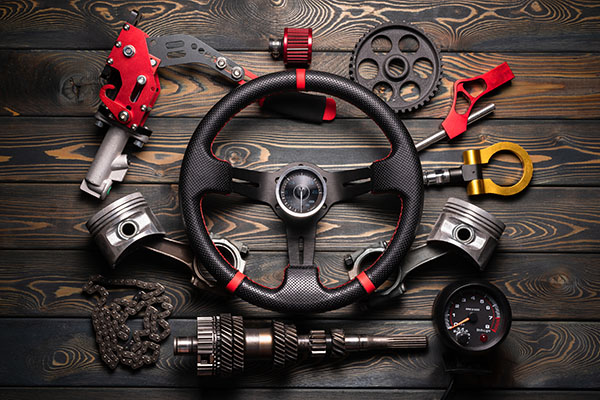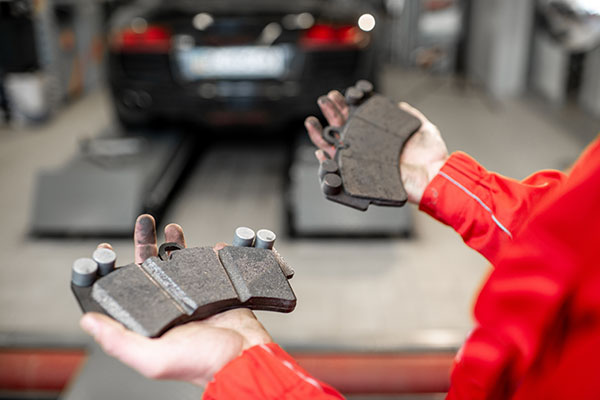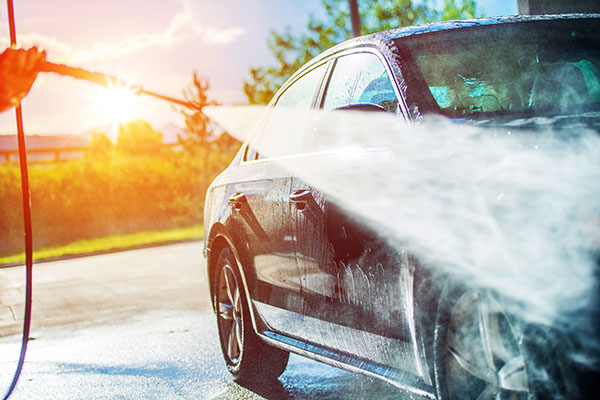Posted on 5/31/2023

Tune-ups are commonly forgotten and not talked about enough. They are one of the best ways to ensure your vehicle will work as intended for as long as possible. It combines a few vital things, like inspecting parts and replacing them if needed, to make sure your car's health stays at its best. If you want to know a couple of the benefits you get from tuning up your car, make sure to read along - here are five of them:1. Improved Performance The first thing you can notice after a tune-up is the performance boost. Air filters, spark plugs, and other vital components responsible for your engine's work are checked and replaced. As a result, the engine will work much better and won't be stopped by bottlenecks like bar parts. 2. Extends Engine Life While tune-ups benefit the whole car, the component that is most affected is the engine. While simple, most engine-related part replacements have a big effect on its overall health. Fur ... read more
Posted on 4/10/2023

Brake pads are one of the most common reasons for a shop visit. Their entire purpose is to be depleted during the deceleration process - the contact they make with the rotors reduces the rotation speed of the wheels. But what if you're not sure when to change them? Don't worry! We are here to help! Here is a overview of what you should expect in the blog: Weird Loud Noises Is Your Car Braking Slower Than Usual? Is The Steering Wheel Shaky? Unfamiliar Lights On Your Dashboard Your Car Starts To Drift To One Side 1. Weird Loud Noises Weird noises are never a good sign when it comes to vehicles. Hearing a loud scratching or grinding noise while braking can indicate two things. One is the wear indicator, and the other is the worn-out brake pads. Some manufacturers include wear indicators in their brake pads to alert drivers when it is time to replace them. Make sure to visit a repair shop if you notice any strange, problematic s ... read more
Posted on 3/30/2023

Keeping your car clean won't only make it look better. It will also get rid of any buildup on parts that are in contact with the elements, such as the brakes and suspension. But what if you want to take on this task on your own? Don't worry; we are here to help. We will give you a few steps to aid you in your car cleaning journey. Below, you will find our guide for cleaning the interior and exterior of your car, as well as a few pro tips from us. How To Clean The Interior Let's start with the interior of the car. Here are a few simple steps you can follow to ensure a hassle-free and professional result: Get the floormats out and clean them. Go around the interior and throw away all of the leftover trash that has accumulated. Using a small brush, get into all the cracks and crevasses, breaking up any buildup. Vacuum up everything from the floor to the door pockets and the central console. Go over all plastic surfaces using an interior plastic cl ... read more
Posted on 2/28/2023

It's dangerous driving at highway or freeway speeds while experiencing cabin vibration or a shaky steering wheel. Such vibrations are a sign of an underlying issue with your vehicle -needing repair as soon as possible to ensure your safety on the road. Down below, you will find some of the reasons that can make a car vibrate. Unaligned Wheels The most common reason for car vibrations mainly felt in the steering wheel, is an unalignment in the wheels. Improper balance in even one of the wheels can lead to a constant change of direction, resulting in vibrations. You can spot if the problem is in the back wheels by feeling the vibrations all through the car. Warped Rotors Another issue may be bent or warped rotors. This can especially be noticed when accelerating to high speeds and breaking afterward. Uneven contact between the brakes and rotors occurs, causing vibrations - or even pulling to one side. Rim And Tire Damage When you hit a curb or go through a pothole, the vehicle ... read more
Posted on 1/30/2023
.jpeg)
According to The Hill, Austin vehicle owners lose approximately an average of 53 hours to congested traffic each year. Austin is a bustling city, and it is named the 18th most congested in the US. While we’re not trying to scare you away from being on Austin’s roadways, we are here to help you make your time going to and from work, school, or the grocery store more worthwhile. Here are some of our top tips for making your drives more calm and enjoyable: Tip #1 - Listen to a Podcast Everyone loves some tunes in the car, but the same playlist can get tiring. To make your commute more interesting, we recommend putting on a podcast on those long drives. There are tons of topics in the podcast world nowadays, ranging from very entertaining to educational choices. Tip #2 - Play an Audiobook Going along the lines of the last recommendation, you can play an audiobook while stuck on the road. Many people don’t have time to pick up a ... read more